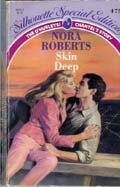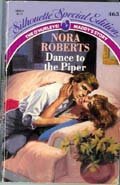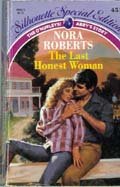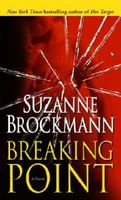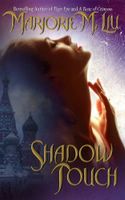But based on the good time I had reading Duchess, I kept buying the other books James put out, and when I decided to read her again, I went for the first in her newest series, Much Ado About You (excerpt).
In many ways, MAAY is a lot like DIL. There's the almost-ensemble cast and the way all these characters are individual and imperfect, and there's the way the romance and the rest of the stuff going on are equally important. There's also the way I didn't mind that at all! A B+.Teresa Essex has a unique lot in life. Actually…she'd rather prefer that lots were not mentioned. She knows far too much about playing the odds: her widowed father gambled away any spare penny owned by their family. Shillings that should have been spent on gowns and governesses for Tess and her three younger sisters were spent keeping her father's horses in proper condition for the race track.
When their father dies, the sisters become the wards of the Duke of Holbrook who knows far more about brandy snifters than children. But Tess's challenges have just begun. With nothing more than a horse each for a dowry, and a drunken duke as a chaperone, she and her sisters must achieve respectable marriages.
In the manner of romantic heroines from the time of Jane Austen, Tess must make a decision whether to marry for financial, prudent reasons, or to follow her heart. But unlike those tales in which heroines prudently make the correct decision, whatever that might be, here fate steps in and Tess must learn a hard lesson: not how to play at love, but how to play at that most serious of pursuits…
When a distant acquaintance dies, leaving him as guardian to his four daughters, the Duke of Holbrook expects four little darlings and prepares accordingly (four different rocking horses are involved, so that they'll be able to rock to their hearts' content and not have to take turns). But Rafe gets a shock when they arrive and he sees that three of them are full-grown women, and the fourth is almost there.
The Essex sisters didn't grow up in a very regular household. Their father was obsessed with horses and racing, and he sunk all their money into them, leaving his daughters to scrimp and save and worry about keeping their household afloat. Now that he's died and they're under Rafe's protection, the plan is to be a burden on him for the shortest time possible. One of them is to marry quickly, and then sponsor the rest of them in their own Seasons.
Fortunately, Rafe has a couple of good-looking friends who wouldn't be averse to considering one of the Essex women as prospects, especially because each of them has a famous horse as dowry, and all three men are very much interested in horses, too.
And so the fun begins. Eldest sister Tess is intrigued by Mr. Lucius Felton, but though obviously interested right back, he seems ready to let his friend, the Earl of Mayne propose to Tess instead. Tess isn't particularly attracted to Mayne, but she's practical, so she accepts when he proposes. The second sister, Annabel, was looking at Mayne, but she's even more pragmatic than her sister, so when he goes for Tess, she moves her sights to Felton. Then there's Imogen, definitely not pragmatic, and determined to marry Rafe's neighbour come hell or high water, and never mind he's already got a fiancée. And finally, there's Josie, the baby at 15, who's not interested in marrying anyone and provides some hilariously blunt commentary.
The romance between Tess and Felton was funny and sweet and tender and quite hot (more on this later), but it was the relationship between the sisters that made this book so good. In most books where I'm enjoying the romance I'll resent it if the focus is taken away from the protagonists, but in MAAY, I never minded seeing more of what was going on with the rest of the cast.
I was very interested in Tess and Annabel and Imogen and Josie. Their relationship is so... sisterly! They obviously love each other very much and are best friends, but they also bicker and fight and see each other's faults clearly. And then there's also their relationship with Griselda (Mayne's sister, and the girls' very plain-spoken chaperone) and Gillian Pythian-Adams (Draven Maitland's fiancée, who does all she can to make him jilt her). Even the relationship between the men was wonderful. There isn't one stock character to be seen among them, and all were lovingly characterized, with their flaws being just as interesting as their good points. Annabel was probably my favourite, with her cheefully mercenary nature, and Rafe, the kind-hearted, perpetually tipsy duke was a close second. I was also very interested in what's going to happen with Imogen, especially after the events near the end and the turn her relationship with Tess took.
As I mentioned, the romance was lovely, too, but I have to say, I had a big problem with the way James wrote a certain element of it. I got the feeling that she basically wanted to eat her cake and keep it, too. She wanted to keep some of the hero's motives in the dark, but she also wanted to give us scenes from his POV, and so she did both, and it just didn't work. ***The next paragraph is a bit spoilerish, so read on at your own risk.***
All throughout the first sections of the book I was bothered by how little Lucius seemed to care that Tess would marry his friend, and so I could only reach the conclusion that for some reason, he'd decided to let things continue as they might, and only stepped in to marry Tess as a last resort. So when it turned out he *had* done something, my first reaction was, hey, that's cheating!
It's a matter of reader expectations, I think. This reader's expectations are that if you have a POV character (and even more, if he is the hero), whatever he has done between segments narrated from his POV, any action that is very relevant to the plot, we'll be told so, in some way. So when Lucius' secret actions came out, I did think it terribly romantic, but at the same time, I felt betrayed, because this was something we readers should have known.
I've heard a lot about a certain something about the third book in the series that makes me think this is something that happens there, too. Well, I'll read it anyway, but I think I'll probably enjoy it more now that I'm warned something like this might happen. It won't be for a while, though. First I need to read Kiss Me, Annabel, and I'm hoping for the best!
 A silent scream, a bloodstained knife...
A silent scream, a bloodstained knife... DJ is looking for a roommate for his condo, and Joe seems perfect. Except for one thing. Joe's number one rule of sharing spaces is not falling for your roommate, and DJ is definitely falling in lust with Joe. DJ tries hard to deny the attraction, but Joe's Italian good looks, his motorcycle and charm soon make DJ regret his choice. And when it looks like Joe might think of breaking Rule Number One himself, DJ has a hard time looking and not touching. Can these two share space without giving in to their need?
DJ is looking for a roommate for his condo, and Joe seems perfect. Except for one thing. Joe's number one rule of sharing spaces is not falling for your roommate, and DJ is definitely falling in lust with Joe. DJ tries hard to deny the attraction, but Joe's Italian good looks, his motorcycle and charm soon make DJ regret his choice. And when it looks like Joe might think of breaking Rule Number One himself, DJ has a hard time looking and not touching. Can these two share space without giving in to their need?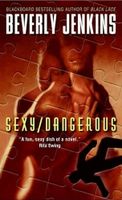 Wearing her shades, a black Stetson, and snakeskin cowboy boots, security agent Maxine "Max" Blake is the baddest thing walking. Ex-marine, ex-cop, and a whole lotta 'tude, Max doesn't have time for anything but her job. Her latest assignment: to protect Dr. Adam Gary. Her problem: he doesn't want her there.
Wearing her shades, a black Stetson, and snakeskin cowboy boots, security agent Maxine "Max" Blake is the baddest thing walking. Ex-marine, ex-cop, and a whole lotta 'tude, Max doesn't have time for anything but her job. Her latest assignment: to protect Dr. Adam Gary. Her problem: he doesn't want her there.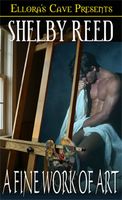
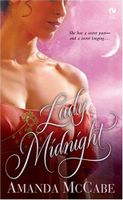 A courtesan in training
A courtesan in training One day Sophie comes home from school to find two questions in her mail: who are you? and where does the world come from?
One day Sophie comes home from school to find two questions in her mail: who are you? and where does the world come from?  A mythic warrior who'll stop at nothing to possess her...
A mythic warrior who'll stop at nothing to possess her... 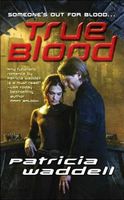 Futuristics seem to be somewhat under-represented in the current craze for paranormals. Too bad, this is a subgenre I've always enjoyed. I was very happy to see
Futuristics seem to be somewhat under-represented in the current craze for paranormals. Too bad, this is a subgenre I've always enjoyed. I was very happy to see 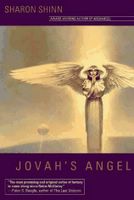 Sometimes when I read the first book in a series and its an absolutely perfect read, I can be a bit hesitant about reading the next installments. It's basically a matter of being afraid something about the other book will diminish the first one for me, that the characters or universe will lose their freshness. Silly, isn't it? But it was the reason it took me almost 5 years to read book 2 of the In Death series after loving
Sometimes when I read the first book in a series and its an absolutely perfect read, I can be a bit hesitant about reading the next installments. It's basically a matter of being afraid something about the other book will diminish the first one for me, that the characters or universe will lose their freshness. Silly, isn't it? But it was the reason it took me almost 5 years to read book 2 of the In Death series after loving 
